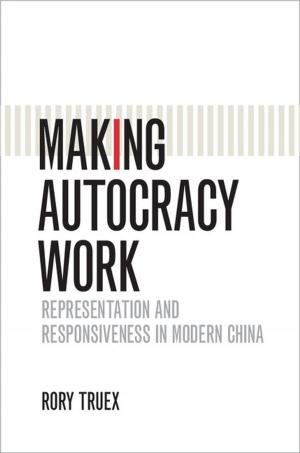The Political Economy of American Industrialization, 1877–1900
Nonfiction, History, Americas, United States, 19th Century, Social & Cultural Studies, Political Science| Author: | Richard Franklin Bensel | ISBN: | 9781139930864 |
| Publisher: | Cambridge University Press | Publication: | November 6, 2000 |
| Imprint: | Cambridge University Press | Language: | English |
| Author: | Richard Franklin Bensel |
| ISBN: | 9781139930864 |
| Publisher: | Cambridge University Press |
| Publication: | November 6, 2000 |
| Imprint: | Cambridge University Press |
| Language: | English |
In the late nineteenth century, the United States underwent an extremely rapid industrial expansion that moved the nation into the front ranks of the world economy. At the same time, the nation maintained democratic institutions as the primary means of allocating political offices and power. The combination of robust democratic institutions and rapid industrialization is rare and this book explains how development and democracy coexisted in the United States during industrialization. Most literature focuses on either electoral politics or purely economic analyses of industrialization. This book synthesizes politics and economics by stressing the Republican party's role as a developmental agent in national politics, the primacy of the three great developmental policies (the gold standard, the protective tariff, and the national market) in state and local politics, and the impact of uneven regional development on the construction of national political coalitions in Congress and presidential elections.
In the late nineteenth century, the United States underwent an extremely rapid industrial expansion that moved the nation into the front ranks of the world economy. At the same time, the nation maintained democratic institutions as the primary means of allocating political offices and power. The combination of robust democratic institutions and rapid industrialization is rare and this book explains how development and democracy coexisted in the United States during industrialization. Most literature focuses on either electoral politics or purely economic analyses of industrialization. This book synthesizes politics and economics by stressing the Republican party's role as a developmental agent in national politics, the primacy of the three great developmental policies (the gold standard, the protective tariff, and the national market) in state and local politics, and the impact of uneven regional development on the construction of national political coalitions in Congress and presidential elections.















